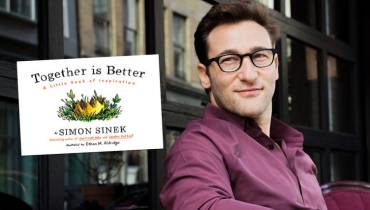New York Times' Social Media Guidelines Warn against ‘Partisan Opinions’
![[node:title]](/sites/default/files/styles/wide/public/u134/new-york-times-social-media-guidelines.jpg?itok=0shSbkn4)
The New York Times on Friday issued an updated and expanded set of tough social media guidelines for its journalists. The Times Executive Editor Dean Baquet told staffers to read the new guidelines closely, and “take them to heart” so that the paper’s journalists are not perceived as biased.
“Many of our journalists are influential voices on Twitter, Facebook, Instagram and other platforms. The voices of our readers, listeners and viewers inform and improve our reporting,” Baquet wrote in a memo sent to the newsroom. “But we also need to make sure that we are engaging responsibly on social media, in line with the values of our newsroom.”
The New York Times New Social Media Guidelines
Baquet called for The Times’ journalists to take extra care to avoid expressing partisan opinions or editorializing on issues the paper is covering. He urged journalists to embrace social media, which offers many opportunities to connect with readers, listeners and viewers, but also adhere to the new social media guidelines developed after consultation with editors and journalists at the paper.
Among the key points listed in the guidelines are:
- In social media posts, our journalists must not express partisan opinions, promote political views, endorse candidates, make offensive comments or do anything else that undercuts The Times’s journalistic reputation.
- Our journalists should be especially mindful of appearing to take sides on issues that The Times is seeking to cover objectively.
- We consider all social media activity by our journalists to come under this policy. While you may think that your Facebook page, Twitter feed, Instagram, Snapchat or other social media accounts are private zones, separate from your role at The Times, in fact everything we post or “like” online is to some degree public. And everything we do in public is likely to be associated with The Times.
- Avoid joining private and “secret” groups on Facebook and other platforms that may have a partisan orientation. You should also refrain from registering for partisan events on social media. If you are joining these groups for reporting purposes, please take care in what you post.
- Always treat others with respect on social media. If a reader questions or criticizes your work or social media post, and you would like to respond, be thoughtful. Do not imply that the person hasn’t carefully read your work.
- If the criticism is especially aggressive or inconsiderate, it’s probably best to refrain from responding. We also support the right of our journalists to mute or block people on social media who are threatening or abusive. (But please avoid muting or blocking people for mere criticism of you or your reporting.)
Questions on Role of Writers in Speaking their Truth on Social Media
Soon after the guidelines went public, there was (as you might expect) heated discussion on Twitter about their impact.
Some folks saw the new rules as giving reporters too little leeway to say true things about political disagreements, the Trump administration and other pertinent issues affecting society. Other folks saw the guidelines as necessary to crack down on journalists’ runaway tweeting habits.
One thing is true, though, as one Slate writer pointed out, watching writers and journalists joke around with each other on social media is one of the few joys left in this sad, low-paying, increasingly unstable profession. And can’t writers and editors just, like, be cool? It’s Twitter after all. Besides, whatever happened to putting “RTs are not endorsements and tweets don’t reflect the views of my employer” in your bio and calling it a day?
Those poor Timesies!
Here’re some of the mixed reactions on Twitter about the new guidelines:
If you forbid journalists from "taking sides" in political disputes, you're also forbidding them from telling the truth when they see it.
— Carlos Maza (@gaywonk) October 13, 2017
fwiw these seem… mostly reasonable? https://t.co/wEG2YgAzzo
— brian feldman (@bafeldman) October 13, 2017
How do you not "take a side" on climate change, bigotry, the dehumanization of undocumented immigrants?
— Jessica Valenti (@JessicaValenti) October 13, 2017
It was nice knowing all of you. We had a great ride. Stay blessed. https://t.co/ftqLCKwN9h
— Sandra E. Garcia (@S_Evangelina) October 13, 2017
Read Also: How to Pitch Articles to Major Web Publications like The New York Times.






![Why Being Your Own Broadcaster Is the Next Big Thing in the Age of Disintermediation [node:title]](/sites/default/files/styles/video_thumbnail_bottom/public/content-creator-direct-distribution.jpeg?itok=MGun44Cz)
![[node:title]](/sites/default/files/styles/video_thumbnail_bottom/public/niger_delta_bridge_7.jpg?itok=n_jP1kHz)












